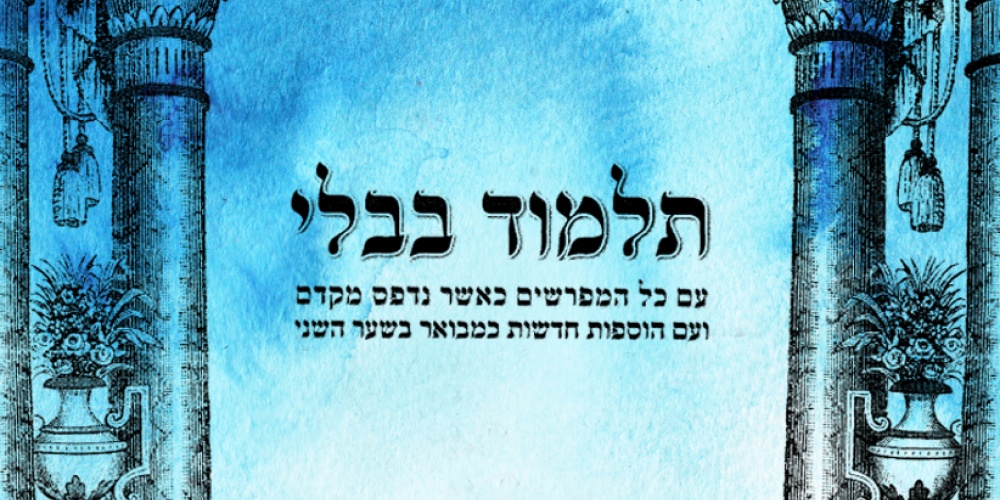
In our last post, we discussed that seven days after giving birth to a boy and 14 after a girl, the newborn mother purifies herself in a mikvah. Any bleeding over the next 33 days for a boy and 66 for a girl is considered dam tohar, blood of purity, and does not render her a nidah. Yet while the mother is no longer considered tameh regarding her status as a nidah, with regards to entering the Temple grounds, she remains tameh until the 40- or 80-day period is over.
Moreover, the new mother must also bring two sacrifices. Had one assumed, quite reasonably, that at least one of them would be a korban todah, a thanksgiving offering, one would be incorrect. Rather, the new mother must bring a korban olah, a burnt offering, and a korban chatat, a sin offering! No wonder “the students of Rabbi Shimon bar Yocḥai asked him: Why does the Torah say that a woman after childbirth brings an offering?” To which he answered, “At the time that a woman crouches to give birth, she impulsively takes an oath that she will not engage in intercourse with her husband again” (Niddah 31a)
Is it any wonder a woman might do so? And if such is true even today, how much more so would this be the norm in an age where having a child was literally life-threatening and there was little one could do to alleviate the pain of the mother? It was the danger and pain that accompanied childbirth, explains the Meshech Chochmah (Breisheet 9:1), that led Jewish law to accept the view that woman are exempt from the mitzvah of pru u’revu. “Its ways are the ways of pleasantness, and all its pathways are peace”. Thus, the Meshech Chochmah argues, the Torah could not and would not obligate women to put themselves in such a position.
Presumably, it is for this same reason that Rabbi Yosef rejects Rabbi Shimon bar Yocḥai’s line of reasoning. Can one really fault a woman for saying such in the moment? The Torah itself ordained that childbirth would be painful. Did the Torah really think that one who can’t grin and bear it is a sinner? If Rabbi Shimon would be correct Rabbi Yosef argues, then a korban does little. After all, she is “a wilful sinner[1]”, and sacrifices are for accidental sins. The way to “atone” for a vow—and thankfully, the vast majority of woman desire to have more than one child—is to go to a scholar who, through his questioning, will be able to attest the vow was made in the heat of the moment and the woman is sorry she said such, enabling the vow to be annulled.
And, Rav Yosef continues, if one were to argue that this “sin” in one for which a korban is brought even for “an intentional sin”, she should have to bring the korban that is specified as atonement for violating an oath, namely a female sheep or goat (Vayikra 5:5). Why, then, does the Torah ordain that the mother bring a dove or pigeon, not to mention that she must also bring a korban olah, a requirement that is totally absent for one who violates an oath?
It is not by chance that it was Rabbi Shimon bar Yochai who considered the mother a sinner for uttering such a vow. This great second-century Talmudist lived not only in an ivory tower, but in a cave for 12 years. Studying with his son, totally detached from a “normal” life, he was unable to relate to the average person. Upon emerging from the cave, he was astonished that people actually farmed for food and did not spend their days in study. That one would waste one’s time engaging in “temporal life” made them angry, and with their powerful gaze, “any place they directed their eyes was immediately burned”. They may have thought these people were sinning, but G-d thought otherwise. “A Divine Voice emerged and said to them: Did you emerge from the cave in order to destroy My world? Return to your cave” (Shabbat 33b). Rabbi Shimon bar Yochai believed that one has to work for a living only “when Israel does not perform God’s will” (Brachot 35b). Is it any wonder that for such a unique person, normal human reaction to pain is not to be countenanced?
Interestingly, neither Rabbi Shimon bar Yochai nor anyone else in the Gemara provides an answer to Rabbi Yosef’s question. Apparently, the Gemara accepts the fact that the mother has committed no sin. How could it be otherwise? Having a baby is the first, and in many ways, the most important mitzvah of the Torah. Why would one want to declare one who performs such an important mitzvah—knowing full well that it will be painful, and until quite recently, quite dangerous—a sinner. We must extol and praise the wonderful mothers of the Jewish people.
This, of course, begs the question as to why a new mother must bring a korban chatat. If there is no sin, why bring a sin offering? Perhaps the simple explanation is that a korban chatat is more than a sin offering. Perusal of the Torah would seem to suggest such. Korbanot chatat were brought for the dedication of the Mishkan, when anointing a high priest, on Rosh Chodesh and yamim tovim, and at the conclusion of the period of being a nazir or a metzora. None of these, prima facie, involve any sin (though many have suggested various possibilities for sins[2]). What they involve is something out of the ordinary, something different. To give this a very modern twist, perhaps (though perhaps not) the “sin” offering is meant as a warning regarding our treatment of the outsider, a charge to be inclusive. And it is specifically at holiday times that we must be most sensitive and inclusive.
All the above may (or may not) explain why a mother must bring a korban chatat. However, missing from the discussion is why she must bring a korban olah, a burnt offering.
“Please take your son, your only one, whom you love, Yitzchak, and go to the land of Moriah and bring him up there for an olah, a burnt offering on one of the mountains, of which I will tell you” (Breisheet 22:2). G-d taught Avraham, the founding father of the Jewish people, that everything we have, even our children, belong to G-d. While Avraham was willing to offer Yitzchak as a korban olah, such, G-d teaches, would be abhorrent. But while actual human sacrifice is another name for murder, our children ultimately belong to G-d. Parents will sacrifice much for the benefit of their children. But parent and child must know that we must be ready to (symbolically) offer ourselves 100% to G-d, loving Him, serving Him and observing His mitzvot.
[1] The idea that the woman would actually keep her vow is not even entertained by the Talmud. This is especially so as Rabbi Shimon bar Yochai asserts that her vow is not that she won’t have more children, something she could (and some did) keep, but that she will never be intimate with her husband. Why she would take such a vow and not the one to have more children is probably just human nature; it’s always easier to blame others than to take responsibility oneself. Saying she won’t have kids means she made a mistake; saying she won’t be intimate with her husband means it’s his fault. Of course, in an age before birth control the two possible vows might have little practical difference.
[2] To cite one fascinating example, the Ramban argues that a nazir must bring a korban chatat for the sin of leaving his holy state of nezirut. We sanctify ourselves by forbidding the permitted. The Rambam argues that the sin of the nazir is becoming one in the first place; how dare a person forbid that which is permitted to him?



